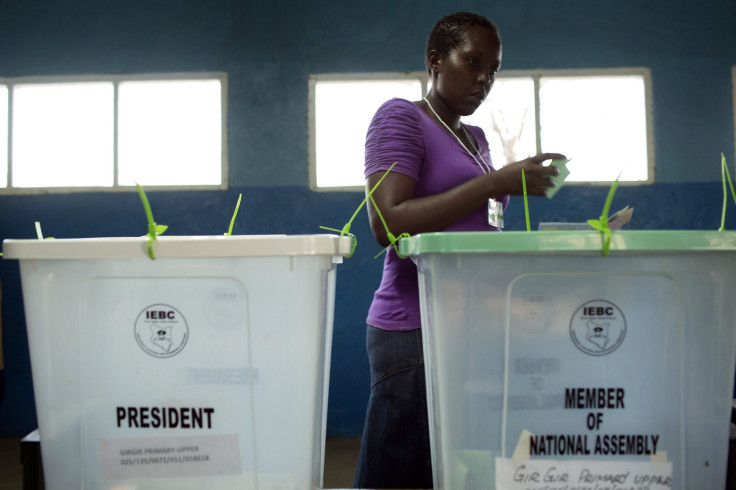
Kenyan politician Uhuru Kenyatta, accused of crimes against humanity, has taken the lead by a wide margin in the Kenya election on Tuesday.
With almost half the votes counted, Kenyatta was winning 54 percent to 42 percent over his opponent Raila Odinga, Kenya's current Prime Minister. The Independent Electoral and Boundaries Commission, in charge of the polls, expects to have provisional results by Wednesday, although Kenyan law gives up to seven days to declare the outcome.
The counting is being carried out as Odinga expresses concerns about the anomalies in the voting process.
"We are not alleging rigging, we are just very worried about the impact of these failures," said political adviser Salim Lone.
The failures that concern Odinga are the more than 300,000 "spoiled" ballots, which were discarded for not following election rules. The problem is that Kenyan law states that a candidate wins the presidency if he has "more than half of all votes cast in the election."
According to legal expert Ekuru Aukot, who helped write Kenya's 2010 constitution, a spoiled ballot is a cast ballot. He explained there are many reasons for which votes are discarded, such as not being stamped by a polling clerk or being placed in the wrong tally box.
So, if spoiled ballots are considered cast, but do not add to the vote results of any candidate under the premise of not being valid, they will raise the country's total number of ballots cast and make it nearly impossible to reach the 50 percent mark that is required to announce a winner.
Tabitha Mutemi, spokeswoman for the Electoral Commission, said officials would make a decision on the matter, but she did not specify when.
These elections were the first held since the 2007/2008 post-election ethnic riots that killed more than 1,000 people and displaced thousands from their homes. Kenyatta is facing trial at the International Criminal Court for orchestrating the spur of violence that led to a new constitution in 2010. He denies the charges, along with his running mate William Ruto who is also accused.
Kenyans voted "massively and peacefully," reported the African Union, adding that "isolated violent incidents did not jeopardize the process as a whole." Many polling stations extended voting hours to cope with the turnout of more than 70 percent of 15 million registered voters.
At least 14 people were killed in attacks in Coast province before polls opened Monday. Two polling centers in Garissa, a town in the north east, were struck by grenades as people waited to vote, though nobody was injured.
© 2025 Latin Times. All rights reserved. Do not reproduce without permission.




